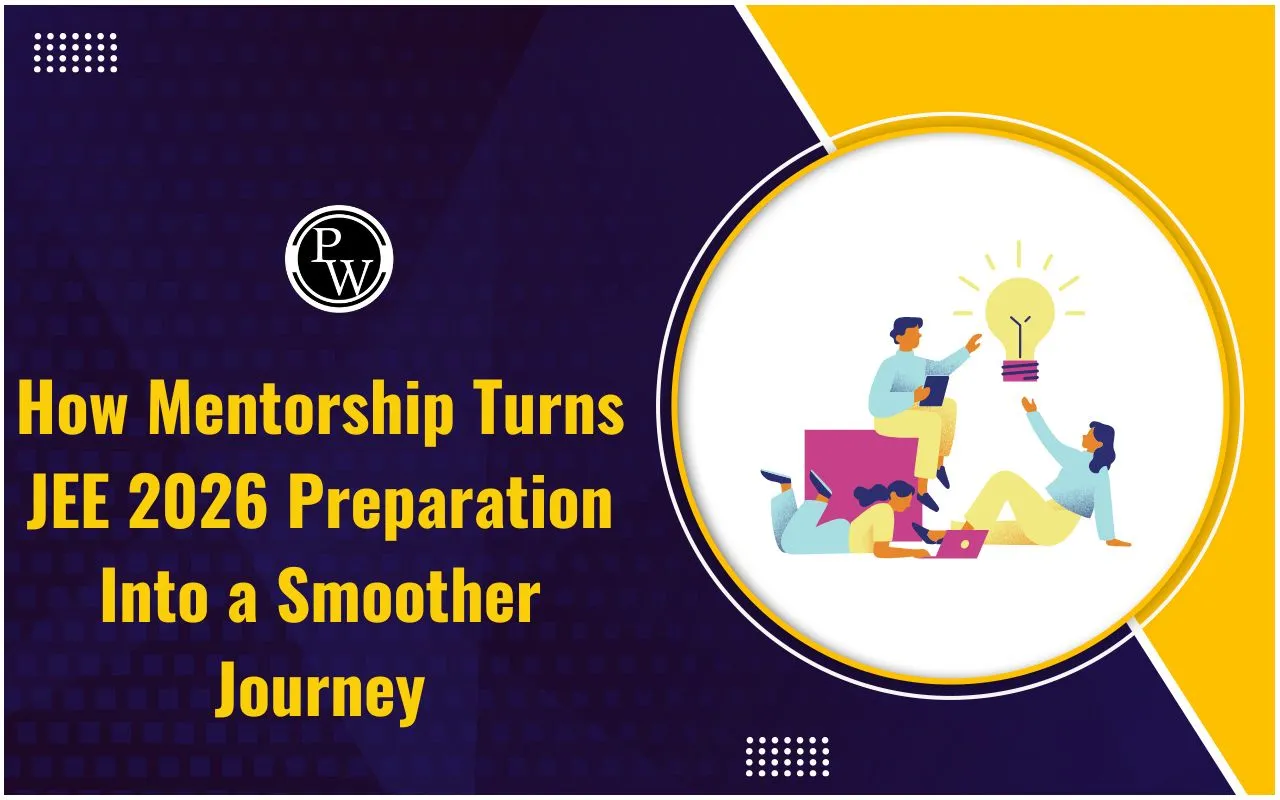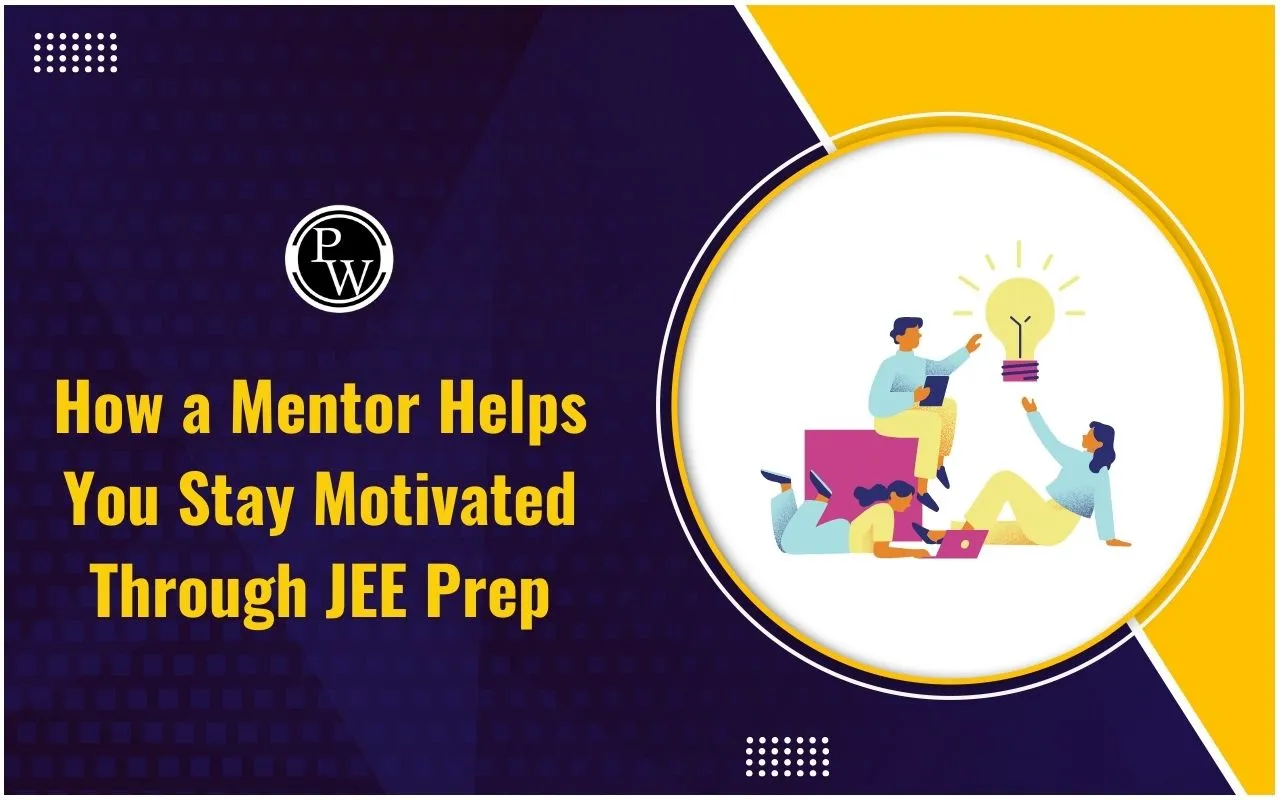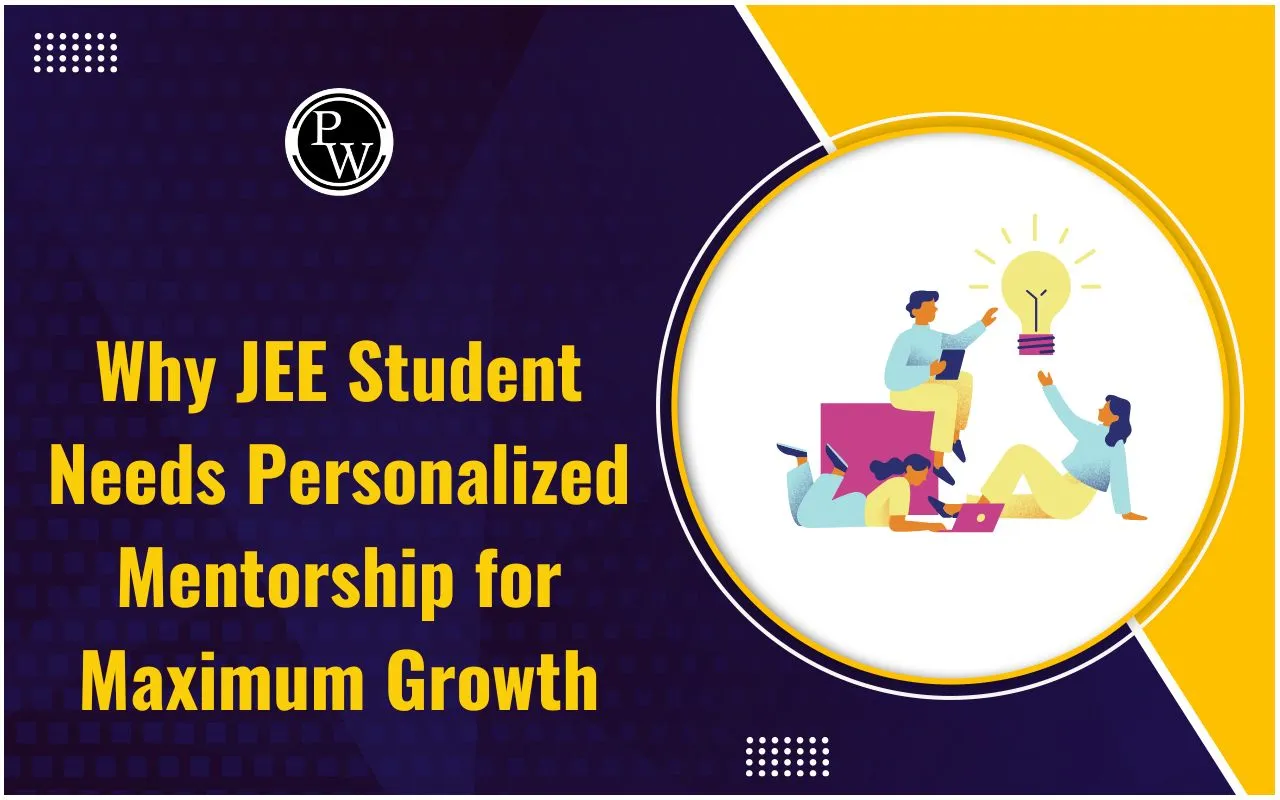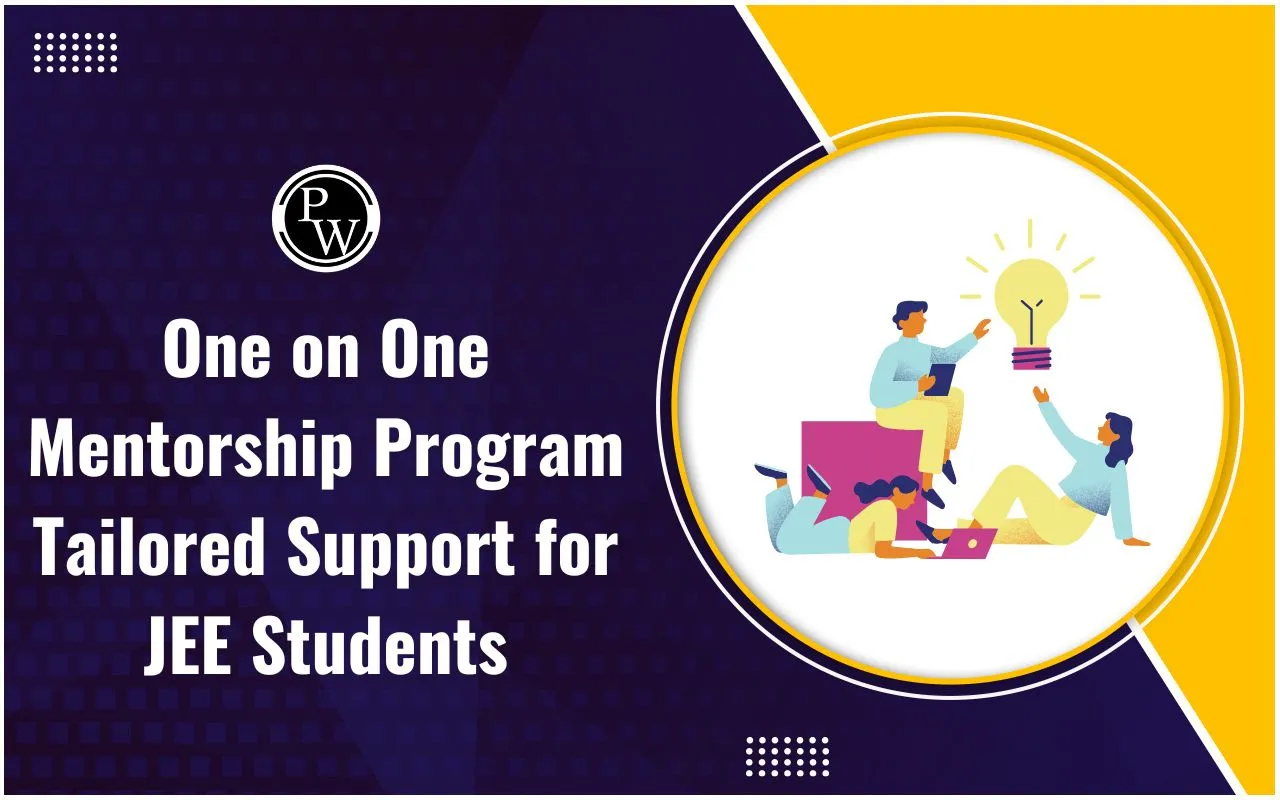
How Mentorship Helps JEE Students Overcome Self-Doubt and Build Confidence : Preparing for the JEE exam is not just about studying hard; it’s also a mental battle. Many students, even those who are academically strong, struggle with self-doubt, fear of failure, and lack of confidence, which can negatively impact their performance, motivation, and consistency. While having strong knowledge is essential, confidence plays an equally vital role. Many students understand the concepts well but hesitate or panic during exams due to self-doubt. Confidence helps them stay calm, think clearly, and tackle difficult questions without fear, improving both accuracy and speed. In such situations, one-on-one mentorship becomes invaluable. Through regular personal interaction, encouragement, and personalized guidance, mentors help students believe in themselves, stay focused, and gradually build the confidence needed to face challenges and perform their best on exam day.
Also Check : JEE Preparation With PW DISHA Mentorship Program
Common Challenges Faced During IIT JEE Preparation
IIT JEE preparation is a demanding and competitive journey that presents multiple challenges for students. Along with the vast syllabus and academic pressure, aspirants, whether in Class 10, 11, 12, or dropper batches, often face intense stress, comparisons with peers, and high expectations from family, teachers, and themselves. When progress feels slow or test results don’t improve, self-doubt begins to take hold, causing students to question their abilities. This emotional burden, if left unaddressed, can grow into anxiety, burnout, frustration, and loss of motivation. Without proper guidance and emotional support, these psychological challenges can severely affect a student’s confidence, consistency, and overall preparation, making it harder to stay focused and perform their best.
How Mentorship Helps in IIT JEE Preparation
Mentorship provides personalized support beyond academics, helping students manage stress, self-doubt, and stay motivated during IIT JEE preparation. Unlike group coaching, one-on-one mentorship, like PhysicsWallah’s DISHA program, addresses individual needs with customized plans and regular guidance, boosting confidence and performance. Mentors also help balance school, coaching, and personal life by creating realistic study schedules, ensuring students avoid burnout and maintain steady progress.
Also Check : Role of 1:1 Mentorship in Enhancing JEE Students' Academic Results
Confidence-Building Mentorship Strategies for IIT JEE
Building confidence in IIT JEE aspirants requires focused mentorship that addresses both academic and emotional needs. Here are the essential strategies mentors use to help students develop self-belief and stay motivated:
1. Regular Mentor Check-ins: Frequent personal interactions help reduce anxiety and overthinking. Mentors keep students on track, clarify doubts, and provide encouragement, preventing feelings of isolation and boosting calmness.
2. Personalized Goal Setting: Mentors set achievable, customized goals based on each student’s strengths and weaknesses. Breaking down the preparation into manageable targets builds self-belief as students witness steady progress.
3. Tracking Progress: Continuous monitoring of study routines and test results helps identify areas that need improvement. This clarity reduces confusion and strengthens confidence by showing clear growth paths.
4. Accountability Partners: Mentors act as supportive partners who gently ensure students stay disciplined and follow their study plans without adding pressure. This positive accountability motivates consistent effort.
5. Creating a Positive Mindset: Through encouragement and understanding, mentors help students overcome fear, doubts, and negativity, fostering resilience and optimism essential for long-term motivation.
6. Constructive Feedback: Instead of focusing on failures, mentors provide solution-oriented feedback that transforms mistakes into learning opportunities, reducing anxiety and promoting a growth mindset.
7. Avoiding Comparison Traps: Mentors guide students to focus on their own progress rather than comparing with peers, which helps reduce self-doubt and maintain motivation on their personal journey.
8. Correcting Self-Sabotaging Habits: By observing study patterns, mentors identify harmful habits like procrastination or inconsistent revision, then offer tailored strategies to replace them with effective practices.
9. Turning Weaknesses into Strengths: Mentors help students target weak areas with focused study plans and resources, enabling them to improve understanding, boost confidence, and handle difficult topics with ease.
IIT JEE Exam Readiness Through Mentorship
Mentorship plays a vital role in preparing students academically, mentally, and emotionally for exam day. Through regular mock tests, simulated practice, and personalized feedback, mentors help students experience real exam conditions, manage time effectively, and stay calm under pressure. They also teach focus and composure techniques, reducing anxiety and boosting confidence to ensure students perform their best when it counts.
Emotional Support in IIT JEE Mentorship
Beyond academics, mentors provide essential emotional support that helps students stay motivated and resilient during the ups and downs of JEE preparation. Through regular personal interactions, mentors offer encouragement, empathy, and a safe, non-judgmental space for students to share their worries. This support helps students manage stress, overcome setbacks, and rebuild confidence, making mentorship vital for sustained perseverance throughout the journey.
How to Build a Growth Mindset for IIT JEE
Building a growth mindset is essential for overcoming challenges and embracing continuous improvement during IIT JEE preparation. Mentors play a key role in fostering this mindset by encouraging students to see challenges and setbacks as opportunities to learn and grow. Through personalized guidance and positive reinforcement, mentors help reduce fear of failure and build resilience, motivating students to persist and develop their skills throughout the demanding IIT JEE journey.
How Mentorship Helps JEE Students Overcome Self-Doubt and Build Confidence FAQsFAQs
How does mentorship help IIT JEE students overcome self-doubt?
What are the main challenges faced by IIT JEE aspirants during preparation?
Why is one-on-one mentorship more effective than group coaching for IIT JEE?
What key strategies do mentors use to build confidence in IIT JEE students?
How does mentorship prepare students mentally and emotionally for exam day?
What role does emotional support play in IIT JEE mentorship?
How do mentors help develop a growth mindset in IIT JEE aspirants?










